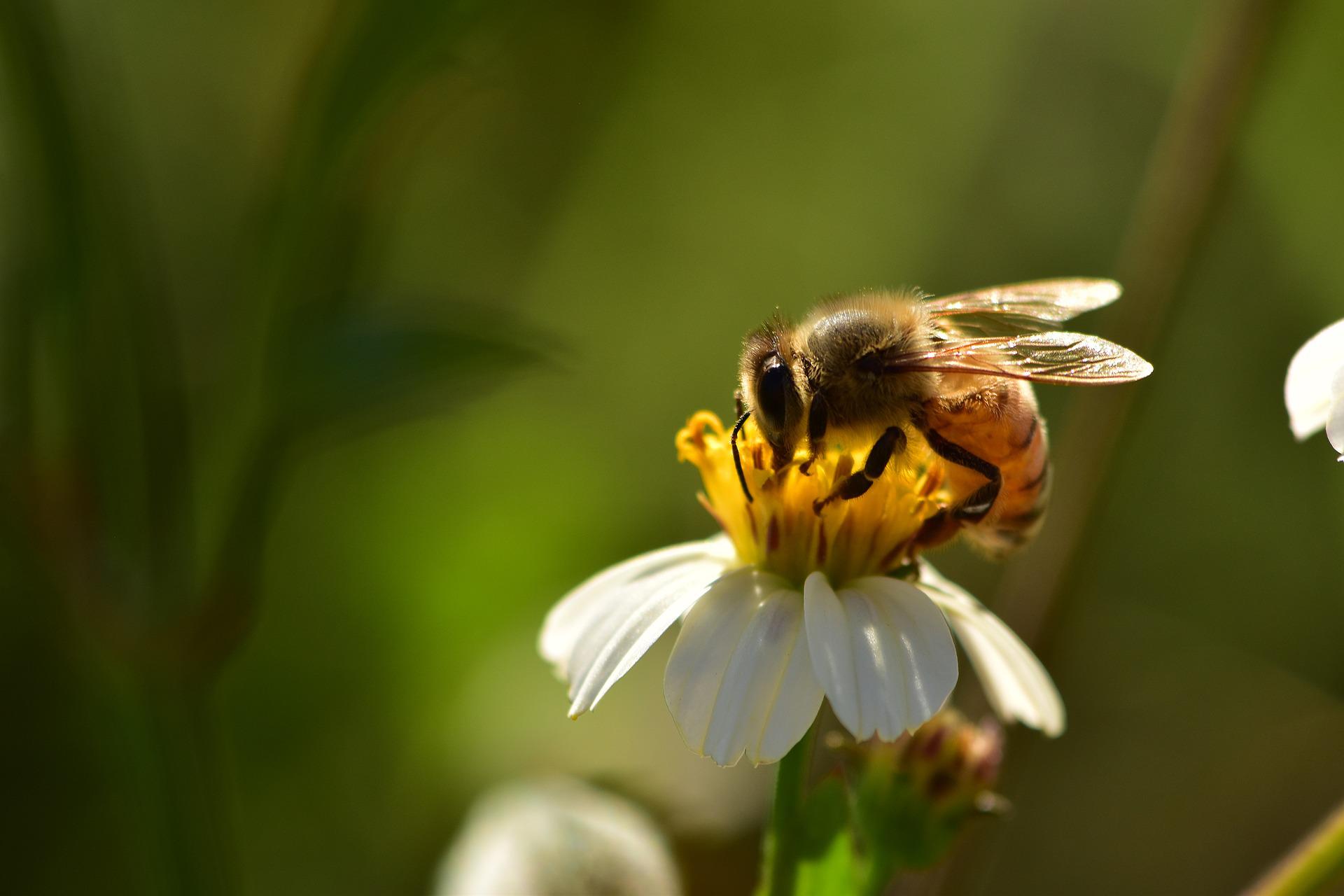Beekeepers, beekeeping clubs and associations, and honey bee enthusiasts from all across the country will join forces for National Honey Bee Day on August 20th to honor the insect responsible for more than 1/3 of the food we eat. The buzzing celebration recognizes their contribution to our everyday lives as a means of protecting this critical species for future generations, as well as pays homage to beekeepers whose efforts ensure we have bees to pollinate our crops and support the plants that provide the air we breathe.
While you’ve likely seen #SaveTheBees plastered on t-shirts, mugs and images online, you’ve maybe asked yourself – why are honey bees so important anyways? The simplest answer is that bees are one of the world’s most important pollinators for food crops. Pollination occurs when insects like bees travel from one plant to the next, fertilizing the plant. Honey bees have little hairs all over their body that attract pollen, and when the pollen from a flower sticks to a bee, it then travels along to its next destination. When a bee lands on the next plant or flower, the pollen is distributed and results in cross-pollination, which is a process that later produces fruits, vegetables and seeds.
You also might be surprised to learn that the value of bees goes beyond supplying the food we eat, as they’re a vital part of maintaining the lungs of our planet. Pollination yields many environmental benefits for clean air as flowering plants and trees produce breathable oxygen by utilizing the carbon dioxide produced by plants and animals through respiration. However, levels of carbon dioxide in the atmosphere have been rapidly increasing in the last century due to increased burning of fossil fuels and destruction of vital forests. Without honey bees and other pollinators, populations of plants would decline, even if soil, air, nutrients and other life-sustaining elements were available.
Just as we count on the hard work of honey bees to keep our food and oxygen sources growing and accessible, they’re counting on us to build and support a planet that welcomes them. If you’re looking for ways to celebrate National Honey Bee Day at home next Saturday, there are plenty of projects that can make a huge difference for your local bee population. For starters, consider making your yard more bee-friendly and air-quality friendly by committing to using environmentally conscious pesticides, since those intended for weeds or nuisance bugs can have deadly consequences for innocent pollinators and result in habitat loss. Furthermore, stocking your cabinets with whole-comb honey and local, raw honey not only supports small, local beekeepers, but through supply and demand also encourages pollinators in your area. As an added bonus, eating local honey has been linked to a myriad of health benefits, including a strengthened immune system and the ability to reduce seasonal allergies.
Doing your share for cleaner air and helping to protect the bees for National Honey Bee Day is a reward that’s even sweeter than the honey they create! To learn more about the link between living greener and our air quality, visit the Clean Air Partnership’s website at cleanair-stlouis.com, like us on Facebook or follow us on Twitter at @gatewaycleanair.

